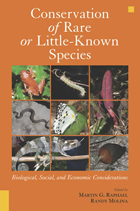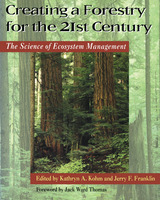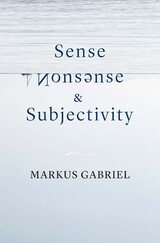
Conservation of Rare or Little-Known Species represents the first comprehensive scientific evaluation of approaches and management options for protecting rare or little-known terrestrial species. The book brings together leading ecologists, biologists, botanists, economists, and sociologists to classify approaches, summarize their theoretical and conceptual foundations, evaluate their efficacy, and review how each has been used.
Contributors consider combinations of species and systems approaches for overall effectiveness in meeting conservation and ecosystem sustainability goals. They discuss the biological, legal, sociological, political, administrative, and economic dimensions by which conservation strategies can be gauged, in an effort to help managers determine which strategy or combination of strategies is most likely to meet their needs. Contributors also discuss practical considerations of implementing various strategies.
Conservation of Rare or Little-Known Species gives land managers access to a diverse literature and provides them with the basic information they need to select approaches that best suit their conservation objectives and ecological context. It is an important new work for anyone involved with developing land management or conservation plans.

Over the past decade, a sea change has occurred in the field of forestry. A vastly increased understanding of how ecological systems function has transformed the science from one focused on simplifying systems, producing wood, and managing at the stand-level to one concerned with understanding and managing complexity, providing a wide range of ecological goods and services, and managing across broad landscapes.
Creating a Forestry for the 21st Century is an authoritative and multidisciplinary examination of the current state of forestry and its relation to the emergent field of ecosystem management. Drawing upon the expertise of top professionals in the field, it provides an up-to-date synthesis of principles of ecosystem management and their implications for forest policy. Leading scientists, including Malcolm Hunter, Jr., Bruce G. Marcot, James K. Agee, Thomas R. Crow, Robert J. Naiman, John C. Gordon, R.W. Behan, Steven L. Yaffee, and many others examine topics that are central to the future of forestry:
- new understandings of ecological processes and principles, from stand structure and function to disturbance processes and the movement of organisms across landscapes
- challenges to long-held assumptions: the rationale for clearcutting, the wisdom of short rotations, the exclusion of fire
- traditional tools in light of expanded goals for forest landscapes
- managing at larger spatial scales, including practical information and ideas for managing large landscapes over long time periods
- the economic, organizational, and political issues that are critical to implementing successful ecosystem management and developing institutions to transform knowledge into action
READERS
Browse our collection.
PUBLISHERS
See BiblioVault's publisher services.
STUDENT SERVICES
Files for college accessibility offices.
UChicago Accessibility Resources
home | accessibility | search | about | contact us
BiblioVault ® 2001 - 2024
The University of Chicago Press









